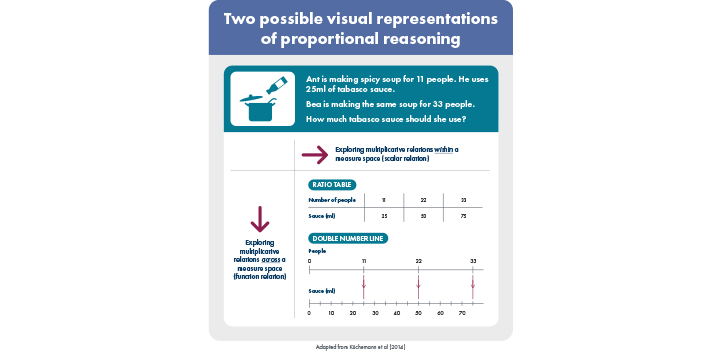10 March 2020

What does research suggest about the development of proportional reasoning in mathematics learning?
- Proportional reasoning involves an understanding of proportionality: change and invariance in relationships, and should be integrated and connected across mathematical strands
- Allowing students a wide range of proportional reasoning experiences over a number of years, beginning when they are young alongside development of their rational number sense, is recommended
- Proportional reasoning is more than just finding missing values; it is a lens for problem-solving that lays important foundations for algebraic thinking
- Premature memorisation of rules is likely to inhibit development of proportional reasoning
- Students should have opportunities to sketch, describe and represent proportion problems and relationships between quantities in informal, invented ways before moving towards symbols and algebra
- Students should be encouraged to explore different areas of mathematics (including slope, scale, probabilities, vectors and rates) through a lens of proportional reasoning, finding the connections and similarities